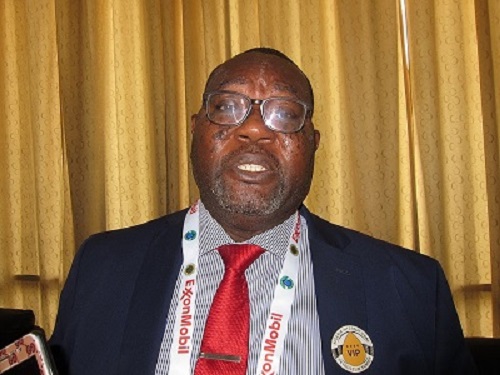Mr. Adetunji Oyebanji, MOMAN Chairman
Operators in the downstream sector of the oil and gas sector have asked the Federal Government to unveil a pricing formula that will guide the monthly adjustments in the pump price of Premium Motor Spirit (PMS) otherwise known as petrol in order to avoid dislocations at the retail end of the value-chain.
According to the operators, many marketers are keeping low stock towards every month end due to the uncertainty surrounding the price of the commodity, especially as government, through the Petroleum Products Pricing Regulatory Agency (PPPRA), still determines the price the product was being sold despite deregulation.
They noted that a pricing formula would guide marketers and consumers on what to expect anytime there is a movement in the price of oil, especially as the country does not control the price of crude oil in the global markets.
The operators, including OTL Africa Downstream, Major Oil Marketers Association of Nigeria (MOMAN), Depot and Petroleum Products Marketers Association of Nigeria and Petroleum Products Retail Outlets Owners Association of Nigeria, during a webinar summit, expressed concerns about the style of market deregulation including pricing, business models, competition, new investments and value-creation in the downstream petroleum Industry.
Chairman of Major Oil Marketers Association of Nigeria, Adetunji Oyebanji, said, the pandemic has presented an opportunity for Nigeria to take some decisions as regards the downstream operations.
With some fundamental changes being proposed, he advocated the need for appropriate laws to back up actions, noting that with government retaining price control, it will always be under pressure to adjust the price due to political considerations.
In his words, “We believe that if the market determines the prices, there will be marginal changes rather than everyone rallying around to change prices. Marketers continue to advocate a proper legislation to allow market dynamics prevail. This because people keep low stock towards month end because they fear price reduction and are worried that they might be unable to plan effectively.”
“Government must ensure that there is a level playing field by removing monopolies, while a strong anti-competition agent should be in place to discourage operators from taking advantage of a free system. Like it has been done in other countries, we need a strong agency that sanctions infractions and help to mitigate price gouging”, he added.
On the benefit of subsidy to marketers and the PPPRA’s decision to allow operators commence import, Oyebanji said, there is no particular benefit to marketers because subsidy is not an income to operators.
The MOMAN boss said, “There was never a time government stopped anyone from importing fuel. Economics is what has allowed marketers to import. Government never stopped marketers from importing; it just didn’t make economic sense given the fixed price. The present situation allows operators to import and recoup their investments.”
Speaking in the same vein, Chairman of Depot and Petroleum Marketers Association of Nigeria (DAPPMAN), Dame Winifred Akpani, said deregulation was the way out of the crises confronting the downstream sector.
She decried the incursion of government into the downstream industry both as a player and regulator, lamenting that the gains recorded in the past when there was robust private sector involvement in the industry has been eroded and most players are now quitting.
Akpani, who is also the Managing Director of Northwest Petroleum and Gas Company Limited, said some of the tank farms have been taken over by banks and AMCON over the inability of some of its members to service their loans as at when due.
Managing partner, Teno Energy Resources Limited, Timothy Okon, explained that luxury of suggesting that “We can determine a price of a product that we do not control its price in the international market cannot stand.”
In her contribution, Hajia Amina Maina Group Chief Operating Officer, of MRS Holdings, said that government policies, has discouraged investments in the Depot space of the sector.
Maina, disclosed that a standard depot costs about N3 to N5 billion and because of low margin and inappropriate policies many investors have abandoned the business.
She noted that with the NNPC taking over 100 per cent of import and price determination with little margin for depot owners many have left due to huge bank loans and business takeover by AMCON.
According to her, since 2016, NNPC had offered depot owners N2 per litter without considering other expenses that leaves marketers with nothing.
She was optimistic that investment will blossom if government takes strong measures to deregulate especially now that COVID-19 has set businesses struggling.
On his part, Billy Gills-Harry, national president, Petroleum Products Retail Outlets Owners Association of Nigeria, advised government to take a strong position on the deregulation exercise to allow more flow of investments in the sector.


Comment here